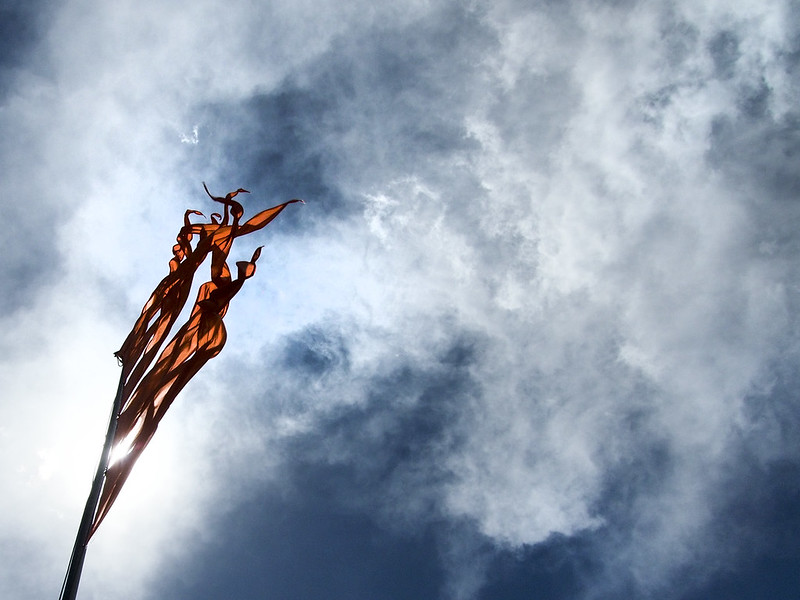When we talk about future images that will significantly change the precarious situation of the majorities, we are talking about having the political will to go in that direction.
In that context, when we review what is being done by the current executive, we do so from the perspective of direction and political will, not from the perspective of actions without context. This is not about personal criticisms, nor is it about ignoring the difficulties of governance functions per se. We firmly believe in processes, and this implies recognising the previous actions of those who preceded us and, in this sense, we agree with Boric when he recognises the accumulation of public policies that have been built up in our history.
But in the context described, we clearly differentiate, from others, the referential actions that historically carry a direction and a political will to make the required changes, for the better living of those who have been sacrificed in their dignity and quality of life, despite their significant contribution to build the wealth of our country, which according to economic indicators has achieved between 16,000 and 25,000 dollars per capita in recent years.
Thus, we are not speculating when we state that the monstrous inequality is due to an unhealthy accumulation by a small group of people in the country. Nor are we doing so when we reveal the inertia of the state in these matters. With political will we are making the point that change cannot be expected mechanically and that a change in the situation therefore requires revolutionising the current state of public affairs in a new direction.
Such changes require the recognition, once and for all, that the supposed impartiality and apolitical status of the various real powers that are operating in the definitions of our society (financial, multinational, military, judicial, political parties and churches) is not such, and there is ample evidence of their interventions to stop government programmes that were expected to change direction and engage with the needs of the majorities. This is the case of Aylwin, Bachelet and today President Boric.
The changes that are required, and to which the common people justly aspire, are not strange, incomprehensible or disproportionate. They are clear and precise in their characteristics, defined in the agendas of the movements and organisations that have been fighting for them. Just as Boric and his comrades, at the time of the mobilisation of university students, had them regarding universal free education, the end of profit, how to overcome the monstrous indebtedness of Chilean families. This affirms that the things to be implemented are already outlined in the heart of the citizens’ organisations. Namely:
- Real agreements on wage dignity between workers and employers, in which speculative financial agents and the usury of the banks are eliminated.
- Prioritise investment in real support for children and adolescents, with schools that provide comprehensive, non-sexist education, preventive health, culture, communications, scientific research, sport, affectivity, solidarity, spirituality, and citizen formation with attention to promoting critical consciousness.
- A system of retirement, compensation in basic services, recreational, health and integration of their knowledge for older adults that allows them a final stage with the joy of living it.
- An integrated health system that prioritises community family centres, in which preventive care prevails, and local hospitals with operational specialities.
- A decentralised housing and urban development plan, with price regulations that do not exceed payments of a reasonable percentage of income, whether in dividends or rents.
The direction of the political will, necessarily has to integrate organised citizenship, study centres, academia, entrepreneurs, that is, all Chilean men and women who can participate in different ways in promoting change. Today we cannot think of a better way forward unless we do so inclusively. Without a national project that takes into account the needs and participation of everyone, it is unlikely that we will be able to get out of the situation of inequality, impoverishment and alienation in which the prevailing model has plunged us today.
At this point, where, from one end of the political spectrum to the other, everyone agrees on the desirability of a Chile that responds to the needs of its people, at least in the well-bred speeches, then the “buts” begin to appear. They mainly talk about the lack of available resources and foreign investment leakage.
What is not said is that in reality the political economic model itself cannot take such a direction, because its conception and dynamics go in the opposite direction. That is why, regardless of who gets to La Moneda, regardless of the political shops A or B, such an administration (as they correctly call themselves today) leaves the possibilities of meaningful change for the needy majorities in status quo.
This is Chile’s real crossroads, it is the challenge to be resolved, and it is here that the political will is concretely defined, the direction that one is willing or not to take, placing the common good at the forefront and as the central axis, accommodating the rest of the issues so that they support and do not hinder the direction required to achieve it.
Today the dilemma we face is whether to go towards an expanding social and economic crisis or to try to revolutionise the system, giving way to that new world that is not allowed to finish being born, because the current old world has not yet died.
Collaborative writing by M. Angélica Alvear Montecinos; Guillermo Garcés Parada and Sandra Arriola Oporto. Political Opinion Commission






